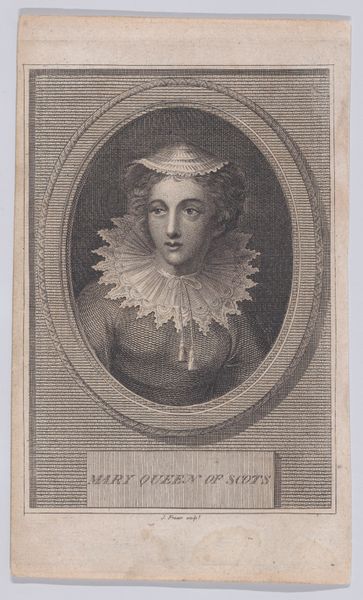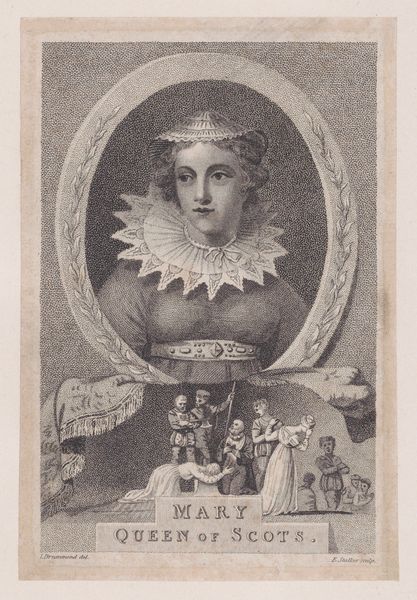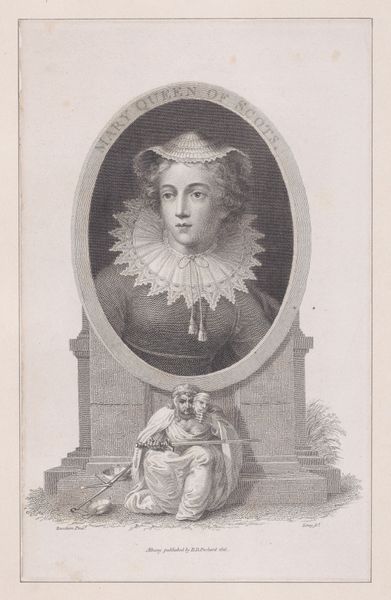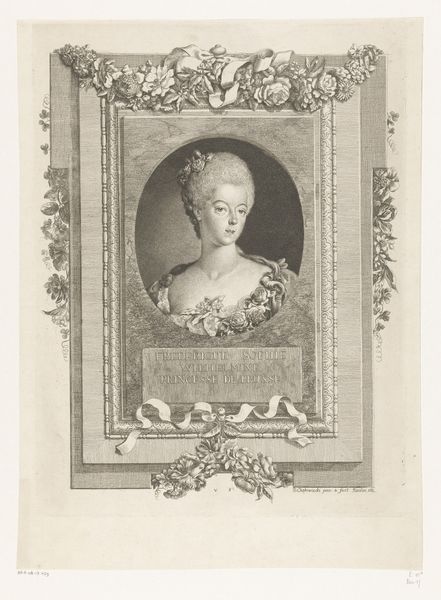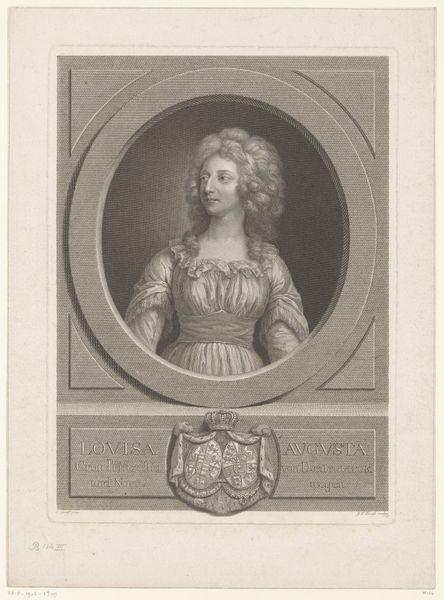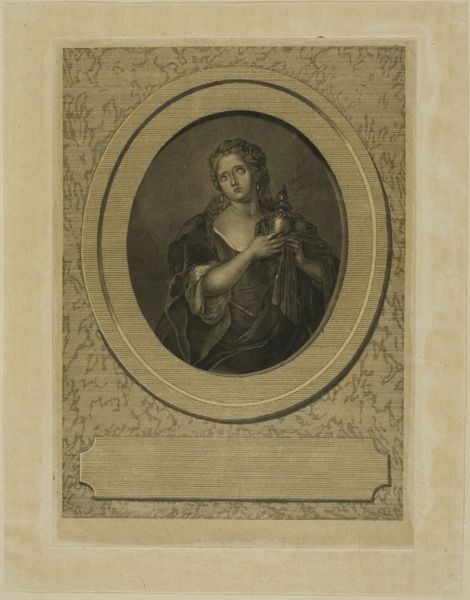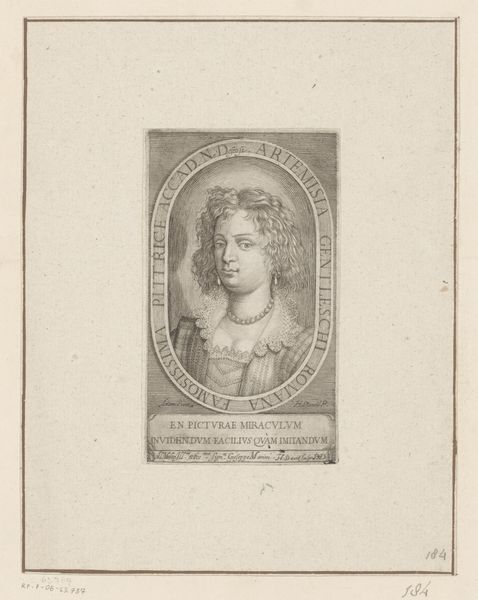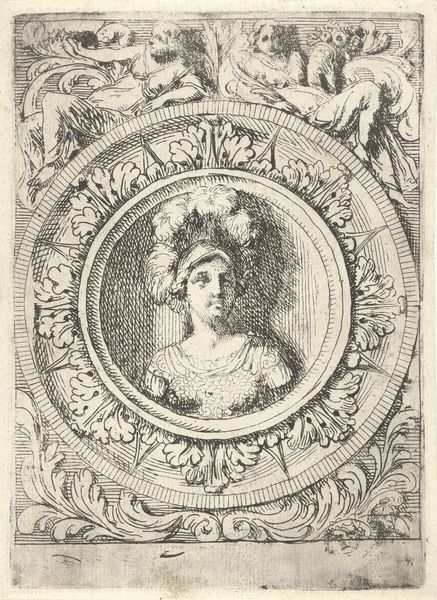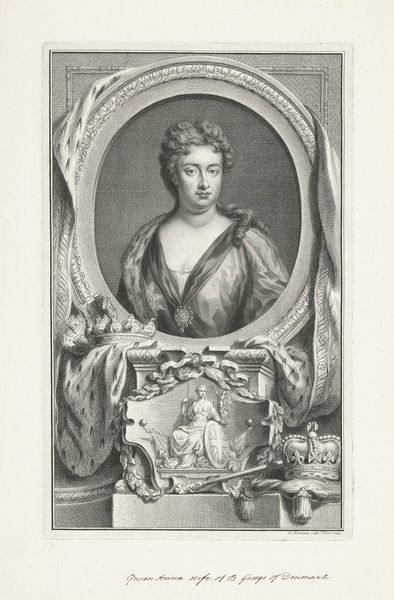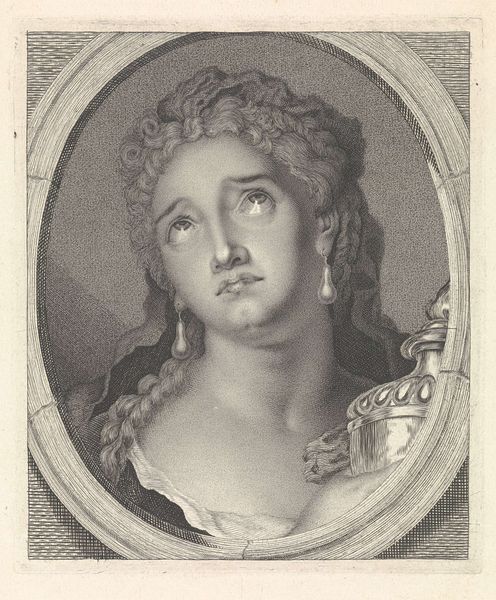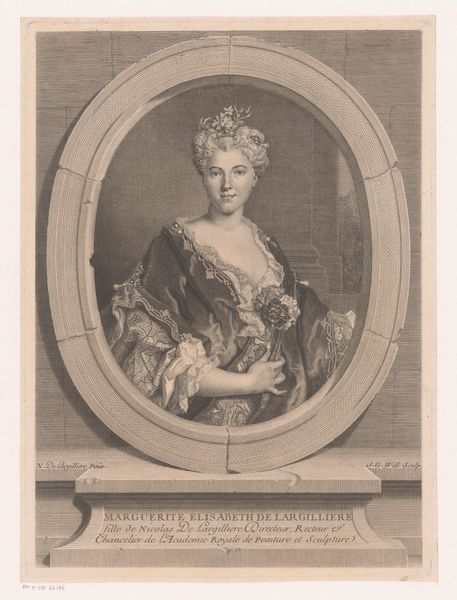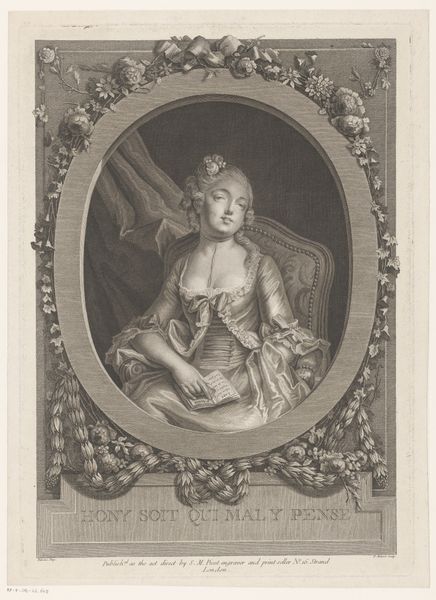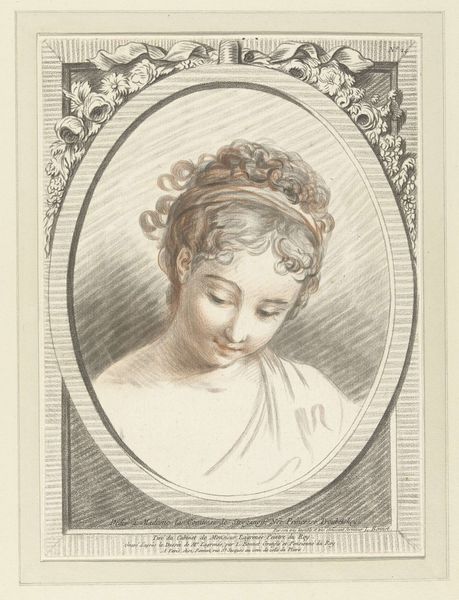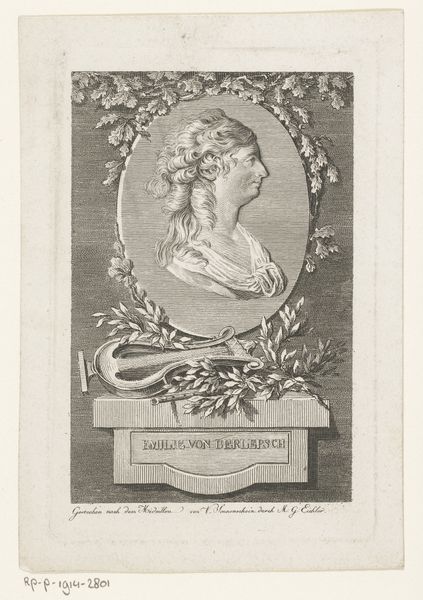
drawing, print, etching, paper, engraving
#
portrait
#
drawing
# print
#
etching
#
figuration
#
paper
#
carved
#
line
#
history-painting
#
academic-art
#
engraving
Dimensions: Sheet: 4 3/4 × 2 3/4 in. (12 × 7 cm)
Copyright: Public Domain
Editor: Here we have an etching and engraving, "Mary, Queen of Scots," created between 1771 and 1835 by Thomas Milton. It feels very formal, even reverential, in its presentation of the Queen. How do you interpret this work? Curator: I see this less as a simple portrait and more as a carefully constructed narrative aimed at shaping historical perception. Note the figures flanking the central portrait. What story do they tell about the legacy of Mary? Do they uplift or critique the patriarchy in the portraiture? Editor: I see them holding what looks like fabric over a tableau... and underneath it says "Mary Queen of Scots". I guess they’re glorifying her. Curator: But consider *which* story they are choosing to glorify. The scene itself seems to be from Mary's imprisonment, yes? The artist isn't necessarily celebrating Mary, but rather tapping into a powerful cultural mythos: the tragic queen, the woman undone by the machinations of men and political power. This artwork, therefore, is more than a record; it's an intervention into a historical dialogue. What message do you think an image like this was trying to tell? Editor: I hadn't thought about it that way, that they were memorializing the imprisonment of Mary. I suppose in that way, it might say that those structures failed to destroy her in spirit, and, therefore, serves as an admonishment against male authority and control over women? Curator: Precisely! Or perhaps more to the point, demonstrates and reflects an instance of that power! This print becomes a space for debating gender and power, extending into present day, wouldn't you agree? Editor: I agree completely. I can see now how one image can represent multiple meanings that can change across generations.
Comments
No comments
Be the first to comment and join the conversation on the ultimate creative platform.
